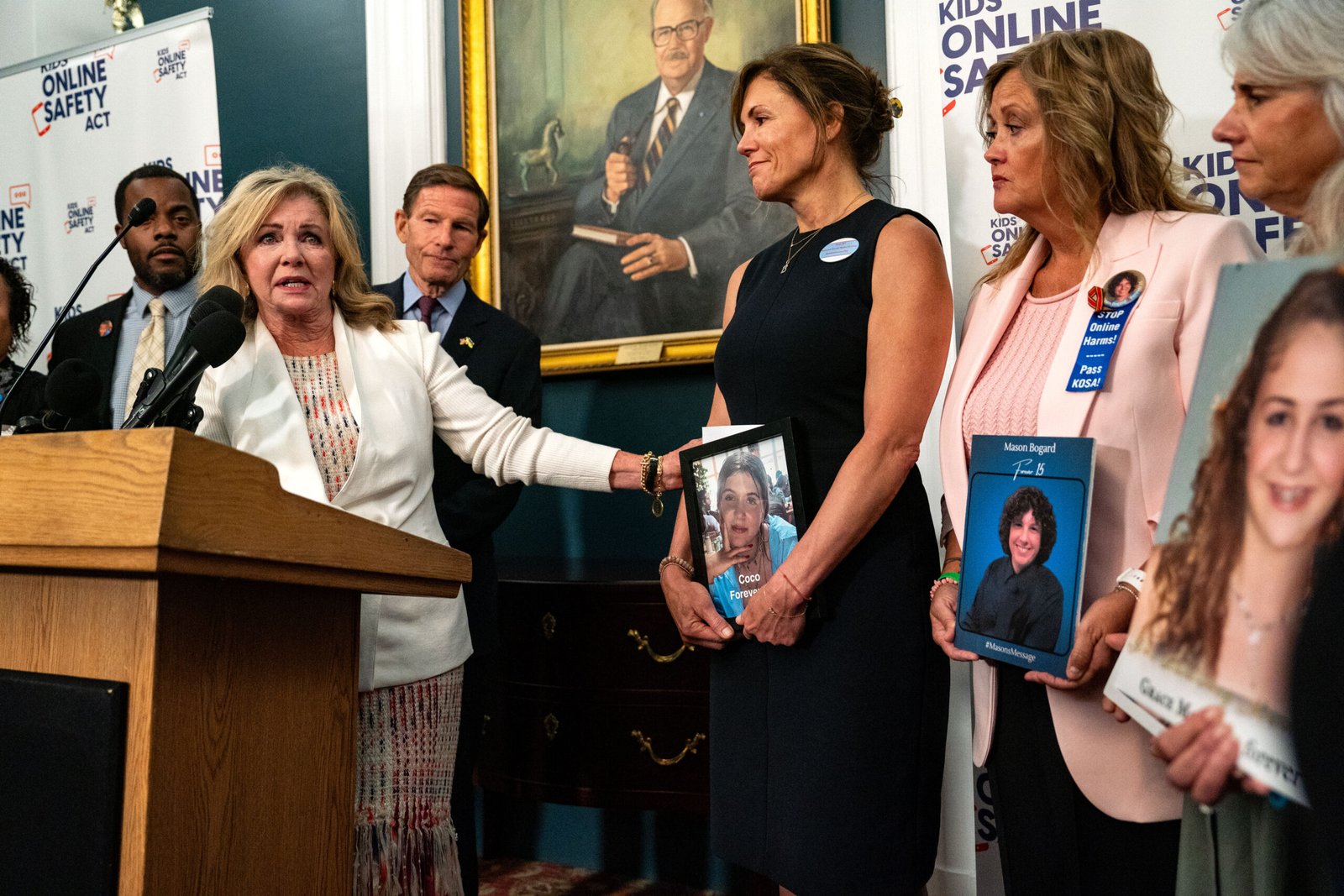American Civil Liberties Union
U.S. Senate Unites in Landmark Vote to Safeguard Children’s Online Safety

WASHINGTON — Legislation aimed at protecting minors online cleared the U.S. Senate on Tuesday, marking what could be the first significant revamp since the late 1990s for technology companies interacting with children on digital platforms.
The Senate approved the package of two bills with a 91-3 vote, a remarkable bipartisan agreement in a closely divided chamber. The three dissenting votes were from Senators Mike Lee of Utah, Rand Paul of Kentucky, and Ron Wyden of Oregon. Critics, including civil liberties and LGBTQ organizations, argue the measures could lead to government overreach and subjective censorship of content.
If enacted by the House, the legislation would impose new rules on companies targeting children and teenagers, including regulations on advertising, algorithm functionalities, and data collection. House Speaker Mike Johnson has indicated an openness to finding consensus on the matter.
President Joe Biden celebrated the Senate’s decision, calling it a “crucial bipartisan step forward.” He emphasized that social media and other online platforms significantly contribute to the youth mental health crisis, advocating for accountability from tech companies.
The legislation package comprises two bills: the Children and Teens Online Privacy Protection Act, focused on data collection, and the Kids Online Safety Act, which has faced substantial criticism. Proponents of the bills point to years of hearings and tragic testimonials from families affected by the negative impacts of social media on children.
Senator Marsha Blackburn, a key sponsor, described the legislation as providing essential tools for parents and children to protect themselves online. Co-sponsor Senator Richard Blumenthal highlighted the need to update laws that have not kept pace with technological advancements.
Senator Ed Markey, who has been a longstanding advocate for online safety, compared addictive social media to the tobacco industry’s past tactics, underscoring the urgent need for new safeguards. He called for comprehensive measures to protect children’s mental health.
Senate Majority Leader Chuck Schumer acknowledged the role of affected parents in pushing the legislative package forward, sharing the devastating impact social media algorithms can have on teenagers.
The combined legislative effort outlines several new requirements for online platforms, including “duty of care” rules, prohibitions on the use of personal data for targeted marketing, and the creation of user-friendly privacy dashboards. It also mandates parental controls and annual public reports on potential harms to minors.
Should the legislation pass, enforcement would fall under the jurisdiction of the Federal Trade Commission, with civil actions handled in U.S. district courts. The laws would apply to a wide range of digital platforms used by minors.
In contrast, advocacy groups argue the legislation is fundamentally flawed and poses risks to free speech and privacy. Evan Greer of Fight For the Future criticized the “duty of care” provision as overly broad and a potential tool for censorship. The American Civil Liberties Union echoed these concerns, suggesting the act could lead to the unwarranted removal of crucial information.
The ACLU recently organized a protest involving around 300 teenagers lobbying against the bill. Advocates worry the legislation might enable authorities to censor content that causes anxiety, potentially impacting discussions on topics like climate change, history, and transgender rights.
Greer supports regulation targeted at detrimental business practices rather than content censorship. The advocacy group is neutral on the privacy protection bill but calls for all-encompassing legislation to safeguard both minors and adults.


















